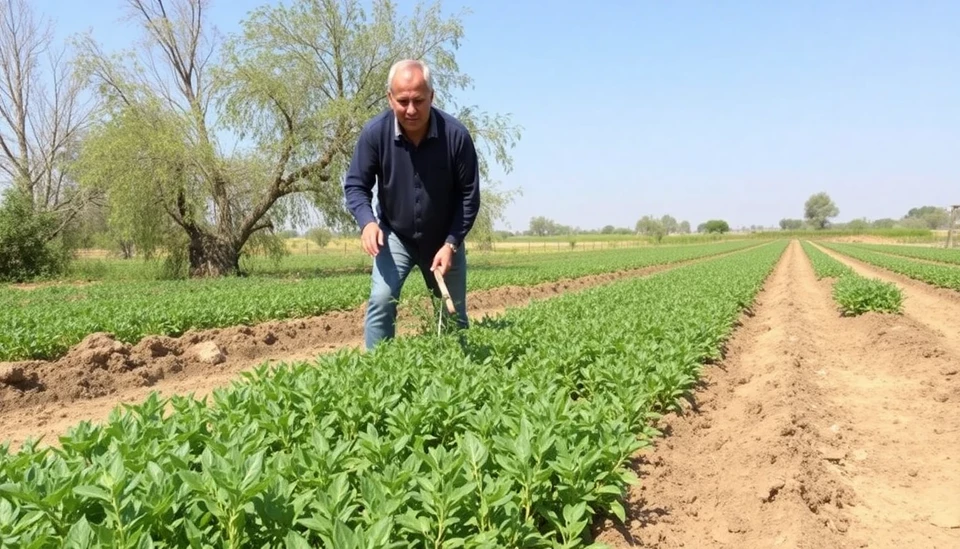
In a striking reflection of resilience amid conflict, Israeli farmers are engaging in a return to traditional agricultural methods as ongoing warfare disrupts their reliance on modern technology. Amid rising tensions and security concerns, these farmers have found themselves once again utilizing manual farming techniques, specifically plowing without the aid of Global Positioning System (GPS) technology.
As hostilities escalate in the region, many farmers are turning away from the sophisticated machinery and GPS systems that have defined modern agriculture. The necessity to farm without these advanced tools has led to a revival of age-old practices that had predominantly remained untouched for decades. This shift underscores the inextricable link between agriculture and the turmoil that defines the landscape of Israel today.
The ongoing conflict has raised significant challenges for farmers, particularly in accessing secured land and the safe operation of machinery. The reliance on technology, while a hallmark of modern farming, has made many farmers vulnerable to disruptions caused by shifting security conditions. Consequently, staple farming practices have emerged as crucial for maintaining agricultural productivity during tumultuous times.
Farmers have reported that the learning curve associated with reverting to traditional methods can be steep, especially for those who have long depended on GPS for precision planting and management. However, the importance of sustaining agricultural output during such conditions has galvanized many towards rediscovering plowing techniques that rely on the human touch rather than automated systems. These techniques involve heightened attentiveness to field patterns, soil conditions, and the natural topography of the land.
As multiple perspectives surface on the impact of the ongoing crisis on the agricultural sector, there is also an existing concern about the sustainability of these revived methods in the long term. While the current situations necessitate their adoption, experts are contemplating the implications of a prolonged reliance on non-technological methods, especially as global agricultural practices continue to evolve.
The agricultural community is thus left in a dual struggle, as both producers and protectors of the land, wrestling with the urgent need for sustenance amid an unpredictable environment, while navigating the complexities of modern agricultural practices that may no longer hold their usual advantages. Farmers stand united in the spirit of resilience, adapting to the realities of the moment with some returning to plowing horses and basic equipment, an embodiment of their determination to keep their farms operational and productive.
The challenges faced by Israel's farmers serve as a poignant reminder of agriculture's foundational role in society and the lengths to which individuals will go to ensure food security even in the face of adversity. These wartime farmers embody a spirit of adaptability, signaling that while technology may be advanced, the heart of farming remains rooted in tradition and resilience.
#Israel #Farming #Agriculture #GPS #WartimeAdaptation #TraditionalMethods #FoodSecurity #MachineLearning #Resilience
Author: Victoria Adams




